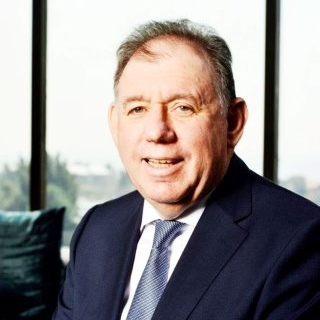
Featured Item

Many plusses from Davos forum – Koseff
MICHAEL BELLING
Deputy President Cyril Ramaphosa and Finance Minister Pravin Gordhan led the South African government team. A host of other South African government officials, businesspeople and NGO representatives, also attended the forum.
“From a South African perspective it went very well,” Koseff told the SA Jewish Report. “I think that Ramaphosa and Gordhan did particularly well representing the country.”
He gave an example of the effect of the WEF on this country, referring to former President Nelson Mandela’s visit in the 1990s.
“Mandela told people he was going to nationalise the banks. People came to him and said – even the Asians – ‘if that’s what you are going to do, no-one is going to support you. You have to rethink your model.’
“And that is why we have the kind of economy, the kind of system that we have (today), because he recognised that they were on the wrong path.”
South Africa had a strong developed infrastructure. “Our auditing profession, banks, stock exchange and legal profession, are very highly ranked in the world; things that other developing markets do not have, we have.
“We have a strong Reserve Bank and national Treasury that govern that side of the economy exceptionally well.
“But where we are failing is in our education of people, our quality of maths and science education and these are big challenges for our system,” he pointed out.
Globalisation was often regarded negatively in developing countries, a view not shared by Koseff.
“It’s very strange to have the Chinese president talking about why globalisation is a good thing.
“If you go back 20, 30 years, what globalisation has done is reduced poverty from 40 per cent of the world to 10 per cent of the world.
“Globalisation has led to massive upliftment of people from poverty, because it created demand in the developing world for goods and services, particularly in Asia. I don’t think it’s worked yet well for Africa.”
But the country had to differentiate between inequality and reducing poverty. “To me as a free market individual, I think the important thing is to uplift people from poverty. You will always have inequality, because you are always going to get the Bill Gateses and Mark Zuckerbergs of this world.
“At the same time, what you have is the displacement of people, certainly in the developed world, and a potential hollowing out of the middle class, as manufacturing jobs are lost.”
Koseff said he had been to Davos many times over the past 20 years, “not representing anyone. I am there to learn. Obviously, we are regarded as part of the South African team. We get asked questions. We get exposure. We are members of a group of South African executives that are there, alongside many government individuals.
“My primary aim is just to get an update on where the world is, what’s going on in the world and how that can impact our country and our business.”
He said the WEF brought together business executives, social entrepreneurs, NGOs, youth leadership and government.
“People can get together and have dialogues around key issues around the world that are affecting economies. It is a forum that obviously believes in liberal democracies and tries to give that kind of message to its members.
“I think any kind of dialogue makes a contribution,” he said.
“You pull people together from different walks of life. I’m a person who believes in the free market and I come into contact with people who still believe in communism. You end up having a dialogue and people start discussing these key issues, what works and what doesn’t work.
“It may help you narrow difference. I think that’s the key thing. It gives you an impression of what’s going on in the world, the pressing issues.”
Among these issues were “a very different sort of fellow elected to lead America, Donald Trump, Brexit in the UK and a big shift to the right in the developed world and some kind of shift to the left in the developing world. This is probably not so good for the world.”
Each year a Shabbat dinner is held for Jewish participants and others. Before the dinner this year there was a memorial service for Shimon Peres, who was a regular feature at Davos and he sometimes spoke at the Shabbat dinner.




